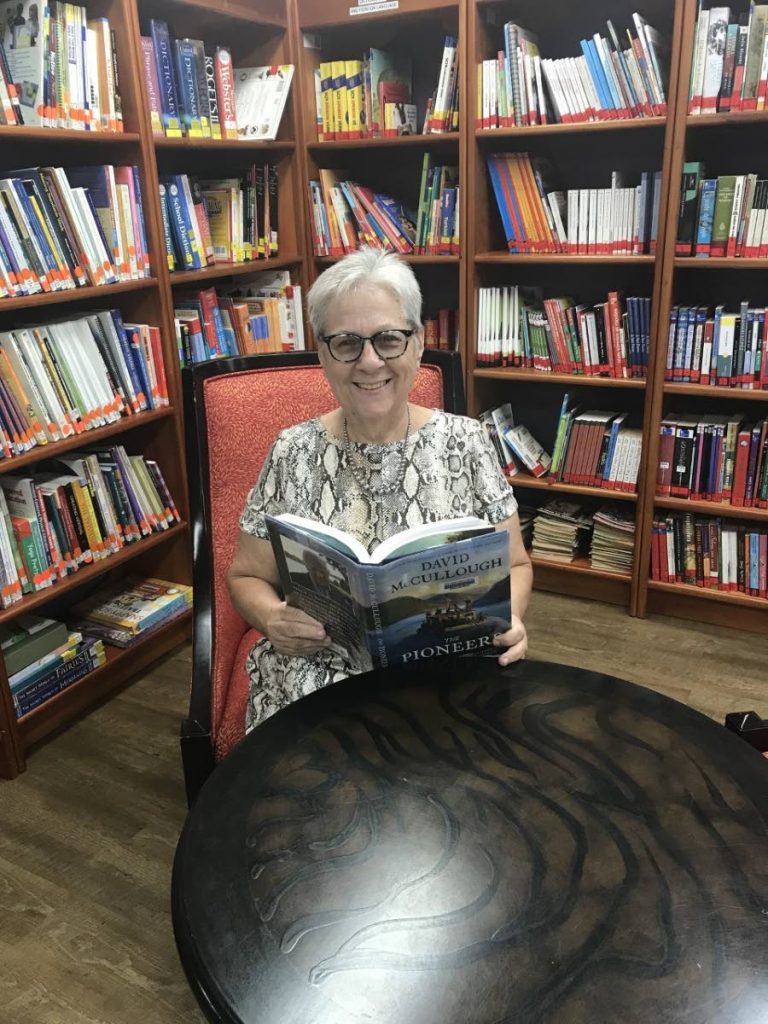The power of one

WE HAVE lost sight of how to value people as individuals. Somewhere along the line we’ve been trained to believe that numbers matter – not individuals. But the last few months have provided invaluable lessons about the value of one.
One man with one bat brought the world to its knees emotionally, medically and economically. One man in a store made a phone call to the police and one police officer caused the death of George Floyd and sparked riots in the US. One person can cause a lot of damage and one person can do a lot of good.
The power of one individual really hit home for me about 11 years ago, when I taught CXC English language, literature and Caribbean history in the Youth Training Centre (YTC). During that time a television station invited me to participate in a panel discussion about juvenile delinquency.
My daughter Ijanaya thought I should take up the offer even though she knew I felt uncomfortable with any form of public speaking.
“This isn’t like being in front of a crowd,” she said. “Think of how good it will be for people to know about what your students in YTC have accomplished.”
She said she would come with me and stand off-camera for moral support. That gave me some comfort.
I can’t remember all who were on the panel, but I do remember Gregory Sloane-Seale, who works with at-risk youths and became national co-ordinator of the Citizen Security Programme, was on the panel of four. I knew Gregory and that also boosted my confidence.
It didn’t take long for me to doubt my decision. When the moderator asked a question about how much success I was having teaching CXC subjects in YTC, I singled out one of my students who had received three CXC passes in my classes. Other students had received passes, but this student had received the most at the time, and I thought he was symbolic of what was going on overall.
The other woman on the panel turned to me and said, “But that’s just one person you’re talking about.” She made it clear that a case built on one person’s success didn’t count.
With one flippant statement she dismissed everything I had said and everything that teenager had accomplished in the cruelest way I could imagine. I blanked out and couldn’t muster an answer. Eventually I noticed Ijanaya standing in the back of the room giving me a two thumbs up signal. I glanced to the side to see Gregory and the other man on the panel nodding their heads and miming words of encouragement. Callers also stood up for me.
In that mean-spirited moment, I had forgotten the lesson that Sterling Stewart had always driven home when he was the superintendent of YTC and later the Commissioner of Prisons. Mr Stewart always said, “You don’t know how important this work is that we are doing with these teenagers. One person can do a lot of damage and hurt a lot of people. Turning one boy’s life around can bring a lot of hope. Saving just one of these teenagers means we are preventing problems now, but it also means we are saving future generations.”
Mr Stewart’s words still guide my life. I never forgot everyone who rescued me from my moment of despair during that television programme. One woman’s insensitivity nearly convinced me that I could not take pride in the individual accomplishments of my students. For her, the success of one student didn’t matter because the nine students I taught at the time were just a drop in the bucket of the prison population, statistically speaking. But their needs mattered as individuals.
No one has ever been able to derail me and make me doubt myself again. Sometimes we have to realise we can make a difference one individual at a time.
Much of the philosophy that shapes my life now comes from the Arbinger Institute, which reminds us that we can only tackle injustice by valuing people as individuals. Slavery, prejudice and all social injustice happened because people lost sight of people as individuals. Those demonstrations against the police brutality that caused George Floyd’s death in the US are meant to remind us that we have to value people as individuals.
It takes individual acts of courage to find new and better ways of communication and education so that we can fight ignorance and oppression. Somehow we must reclaim a vision of the power of one.


Comments
"The power of one"